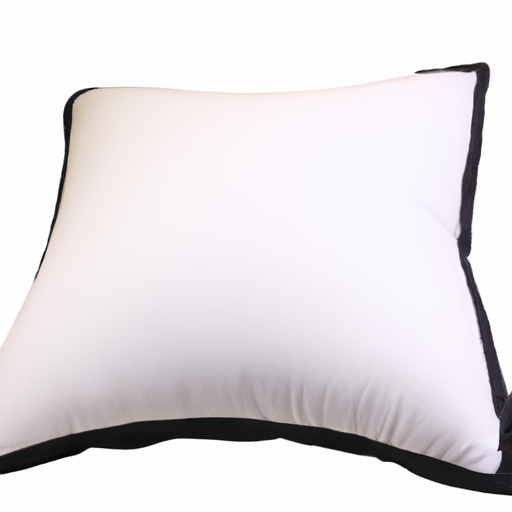Breathing while sleeping is an essential aspect of getting rest and can be a challenge when suffering from asthma. Many studies have been done to understand the effects of sleeping on your stomach with asthma and to discover the best strategies for managing symptoms. This article will explore the potential link between sleeping on your stomach and asthma, the risks associated with this position, sleep strategies for people with asthma, and other considerations for better sleep.
The Potential Link Between Sleeping on Your Stomach and Asthma
The link between sleeping on your stomach and asthma alludes to the fact that this sleeping position can make it more difficult to breathe. This is because lying on your stomach can compress your chest, making it difficult to draw a full breath. Additionally, while on your stomach, you may be more likely to shift onto your chest which can cause your chest cavities to constrict, making breathing more difficult.
It’s important to note that scientific research has not been able to draw a definite conclusion about the full effects of sleeping on your stomach with asthma, however it is accepted that this sleeping position can potentially aggravate asthma-related symptoms.
What are the Risks Associated With Sleeping on Your Stomach if You Have Asthma?
Generally, when sleeping on your stomach, you may struggle to get a full breath as your chest is compressed by the mattress. Additionally, a person may unintentionally turn their head in an awkward direction, resulting in a blocked airway. This can cause a number of risks for people with asthma, such as an increased risk of airway blockage and in some cases, more frequent asthma attacks.
It is also important to note that lying on your stomach may result in increased levels of stress and anxiety which can in turn exacerbate asthma symptoms. All of these factors combine to mean that sleeping on your stomach can have a significant detrimental effect on asthma.
How to Sleep Comfortably While Managing Your Asthma
One of the best ways to manage your asthma while sleeping is to be aware of potential triggers. Consider the type of pillow you use, the temperature of your room, and if you are in an area with a high pollen count or high air pollution. All of these factors can potentially provoke an asthma attack, so be sure to create an environment that will allow for a comfortable and uninterrupted sleep.
Additionally, if you want to try sleeping on your stomach but are concerned about the risks listed above, it is encouraged to invest in a firmer mattress and thicker pillows. The firmer mattress will offer additional lumbar support while the thicker pillows will support the head while making sure it is aligned with the spine.
Tips for Reducing Stress and Anxiety When Sleeping on Your Stomach
Stress and anxiety can be problematic for people with asthma, as it can trigger attacks more frequently and disrupt sleep quality. Additional stress and anxiety may be experienced if you are struggling with breathing difficulties due to sleeping on your stomach. To reduce these feelings, focus on creating an environment that is comfortable and calming before bed. This may involve implementing a relaxing nightly routine or utilizing relaxation techniques such as meditation or breathwork.
The Benefits of Using a Special Pillow While Sleeping on Your Stomach With Asthma
One strategy you can use to make sleeping on your stomach more comfortable while managing asthma is to invest in a special asthma pillow. These pillows are designed specifically for sleepers who suffer from asthma and are designed to reduce risk factors associated with asthma attacks. They are constructed from supportive materials such as memory foam or shredded foam and provide extra cushioning around the neck and shoulders so that you can draw full breaths with ease.
What Impact Does Sleeping Position Have on Breathing for People With Asthma?
According to research studies, there is no definitive answer detailing the overall impact of sleeping posture on breathing for individuals with asthma. However, it is agreed that significant sleep disruption is linked to when a person sleeps on their stomach, due to potential higher levels of stress and anxiety as well as a susceptibility to developing sleep apnea. Additionally, numerous studies have shown that sleeping supine (on the back) is beneficial when it comes to reducing symptoms and managing breathing difficulties.
Strategies for Improving Sleep Quality and Reducing Symptoms of Asthma
To ensure restful nights and reduce the amount of episodes caused by asthma, there are various strategies that can be applied. These include: exercising regularly; avoiding allergenic substances; avoiding activities that cause shortness of breath; taking prescribed medications; utilizing relaxation techniques such as yoga, meditation and deep breathing; using stress reduction techniques such as guided imagery; not eating prior to bedtime; maintaining a healthy weight; using an air humidifier if necessary; and avoiding cigarette smoke or secondhand smoke.
How to Avoid Sleep Apnea in People With Asthma
Sleep apnea is an increase in breathlessness during sleep, which can be caused by sleep-disorders related to asthma or allergies. Certain steps can be taken in order to reduce the likelihood of developing sleep apnea: using a positive airway pressure (PAP) machine if prescribed by a doctor; avoiding alcohol and drug use prior to bed; maintaining a healthy weight; and avoiding caffeine prior to bedtime.
Summary and Conclusion
As we have seen, sleeping on your stomach whilst having asthma can exacerbate symptoms, leading to increased difficulty when breathing. Whilst there is no one definitive answer when considering how much this position affects breathing for those with asthma, it is accepted that there are potential risks associated with this sleeping position. In order to better manage symptoms and improve sleep quality, it is best practice to follow a generally healthy lifestyle and create an environment which is comfortable and conducive to restful sleep.



